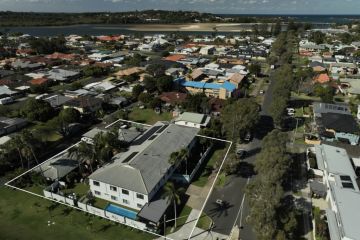Investor loans plunge in the ACT as bank action bites

Latest residential lending data from the ABS reveals that the level of investor finance commitments reported over July has fallen sharply in all states except Queensland.
Sharp declines in lending to investors follow recent action by the regulatory authorities to direct banks to tighten lending conditions to this group. The action by banks was designed to moderate perceived risky lending to investors despite price growth in most capital city housing markets remaining relatively subdued.
Investor loans in the ACT fell by 7.8 percent over July to $200.3m according to the ABS. Although clearly a sharp fall in monthly activity, July’s result was nonetheless the fifth highest local result recorded by the ABS and followed the all-time record set over June of $217.3m.
Strong investor activity in the ACT has been a key component of the solid revival in the Canberra housing market over the past year. Despite the July fall, the value of investor finance approved in the ACT over the first 7 months of this year remains 24.3 percent higher than that recorded over the same period last year.
Residential investor lending accounted for 47.5 percent of all housing finance approved over July in the ACT which was the highest market share recorded for over 2 years but reflected a sharp fall of 11.2 percent in the value of owner –occupier loans over the month.
Residential investment remains an important driver of economic activity, particularly for the ACT economy with latest ABS data reporting the jobless rate rising to a year-high 4.8 percent over August.
A solid supply line of rental properties is also important for Canberra tenants with recent Domain vacancy rates for houses falling from 1.5 percent to a very tight 1.4 percent over August. Shortages of rental properties will continue to put upward pressure on rents with negative consequences for housing affordability.
Dr Andrew Wilson is Domain Group Senior Economist Twitter@DocAndrewWilson
We recommend
States
Capital Cities
Capital Cities - Rentals
Popular Areas
Allhomes
More








